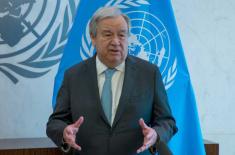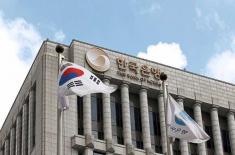
HRCP Hosts A Seminar On Right To Education
Umer Jamshaid Published December 26, 2024 | 11:24 PM

Human Rights Commission of Pakistan (HRCP) and the Institute of Development Research and Corresponding Capabilities (IDRAC) jointly hosted a compelling dialogue on the implications of outsourcing schools in the province of Punjab, bringing together education experts, analyst and education activists here on Thursday
ISLAMABAD, (UrduPoint / Pakistan Point News - 26th Dec, 2024) Human Rights Commission of Pakistan (HRCP) and the Institute of Development Research and Corresponding Capabilities (IDRAC) jointly hosted a compelling dialogue on the implications of outsourcing schools in the province of Punjab, bringing together education experts, analyst and education activists here on Thursday.
The discussion was opened by Amjad Nazeer elaborating on the pros and cons of outsourcing schools to the individuals, groups and private entities (including NGOs). Mr. Nazeer touched upon several challenges and opportunities posed by outsourcing in the education sector, with a particular emphasis on equity, access, affordability, quality, and the rights of marginalized communities.
The session was introduced by Naseer Azhar from HRCP, who framed the conversation by highlighting the critical issues circling around, particularly in light of Pakistan’s fragmented, class-based and chaotic education system. Her remarks set the tone for a nuanced and urgent aspects of on the state of public education in the country.
Farhatullah Babar, Council Member HRCP, offered a political perspective, questioning whether the government’s strategy aligns with addressing systemic issues or risks widening existing disparities. His critique challenged policymakers to rethink the outsourcing initiatives through public-private-partnership could potentially impact on equity and governance. He specifically highlighted the concerns for the ownership of the school premises.
While throwing light on the complexities and failure of multiple policies tested in the past, Amjad Nazeer, Executive Director IDRAC, drew elaborate analysis of the current state of public schools and privatizations rational and cost cutting factors of outsourcing education, specifically in Punjab.
Evidence based national statistics were illustrated by him to paint a worrisome state of affairs, if the trend expands further, however, certain benefits and advantages are quite vivid at the moment. He also cautioned against the risks of the increasing trends of privatization, emphasizing its potential to deepen inequities and poor quality education if not carefully regulated, while also acknowledging areas where it could potentially fill critical gaps.
Renowned educationist Dr. A.H. Nayyar questioned whether privatization could genuinely enhance enrollment, quality, and access to education as it is being claimed by the respective government and the ministry of education in Punjab. He raised pressing concerns about the long-term viability of privatized models and their potential to undermine public education infrastructure.
Zeeba Hashmi, an advocate for girls’ education, drew attention to the intersection of privatization with equity and access, particularly for girls in underserved regions. She underscored the urgency of ensuring inclusive policies to safeguard the rights of vulnerable populations, girls in particular.
Overall, the session featured a robust and dynamic discussion, with participants from academia, civil society, and the public contributing diverse perspectives. The dialogue highlighted both the promise and pitfalls of privatization, reinforcing the need for a balanced approach.
Concluding, all the participants agree that rather than privatization, it is the fundamental responsibility of the government to herself provide education to all children and allocate at least 4% of its GDP to education as per universally accepted standards.
Related Topics
Recent Stories

UN expresses concern over human toll resulting from intensified hostilities in G ..

Korea's foreign reserves rebound from 5-yr low in March

Currency Rate In Pakistan - Dollar, Euro, Pound, Riyal Rates On 3 April 2025

Today Gold Rate in Pakistan 03 April 2025

'All lines crossed in Gaza': UNRWA Commissioner-General

Dozens of Palestinian martyred, wounded in Israeli bombing of Gaza Strip

Austria taking preventive measures to counter risk of foot-and-mouth disease

India brands Kasturi Cotton to compete in world markets

Hamdan bin Mohammed visits Reserve Forces Command in Abu Dhabi

Sharjah Ramadan Festival 2025 records AED half billion in sales

UAE President receives phone call from Iranian President to exchange Eid Al-Fitr ..

Myanmar earthquake death toll rises to 2,886
More Stories From Pakistan
-
Van-Motorcycle collision in Kashmore leaves 1 dead
3 minutes ago -
Pedestrian died in road accident
1 hour ago -
Military occupation takes toll as IIOJK registers 13,000 cancer cases annually
1 hour ago -
Pakistan's first humanitarian aid consignment for earthquake affectees handed over at Yangon, Myanma ..
10 hours ago -
People celebrate third day of Eid
10 hours ago -
AJK PM hosts Eid-ul-Fitr delegations, vows to address public grievances
10 hours ago
-
6 injured in Karachi dumper accident
11 hours ago -
Two dacoits killed in shootout with police in Attock
11 hours ago -
PM extends Eid greetings to Ch. Anwaar ul Haq with best wishes
11 hours ago -
PIA flights for UK to start soon: Asif
11 hours ago -
Global Disability Summit starts in Berlin
11 hours ago -
BYC spreading propaganda against security forces: DIG Quetta
11 hours ago